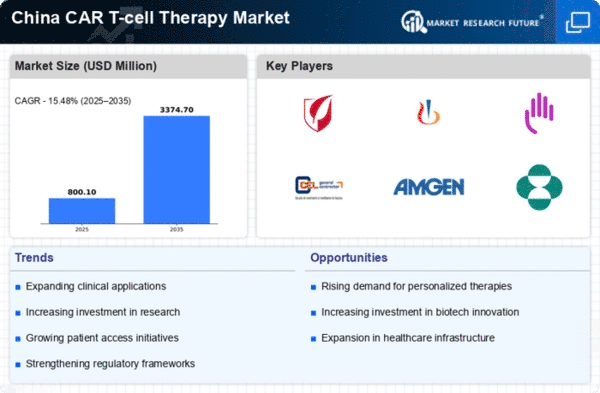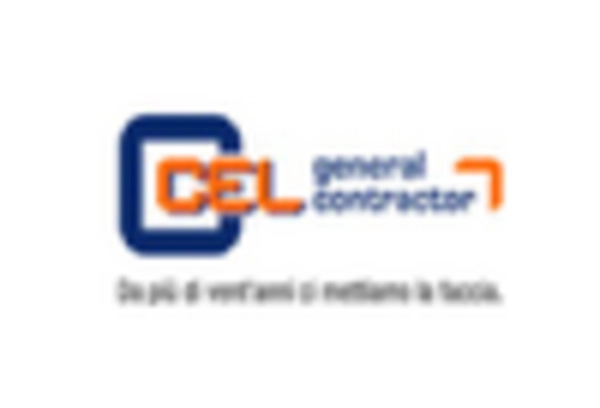Supportive Regulatory Environment
The regulatory landscape in China is evolving to support the development and approval of car t-cell therapies. The National Medical Products Administration (NMPA) has implemented streamlined processes for the review and approval of innovative therapies, which is likely to expedite the entry of new treatments into the market. In 2025, it is projected that the approval time for car t-cell therapies has decreased by approximately 40% compared to previous years. This supportive regulatory environment encourages companies to invest in research and development, knowing that their products can reach the market more swiftly. Additionally, the establishment of clear guidelines for clinical trials is fostering a more predictable pathway for developers. As a result, the car t-cell-therapy market is expected to grow as more therapies gain regulatory approval and become available to patients.
Growing Patient Awareness and Demand
In recent years, there has been a notable increase in patient awareness regarding advanced cancer treatments, particularly car t-cell therapies. Educational campaigns and advocacy groups have played a crucial role in disseminating information about the benefits and availability of these therapies. As patients become more informed, the demand for car t-cell therapies is expected to rise. In 2025, surveys indicate that approximately 60% of cancer patients in China are aware of car t-cell therapies, a significant increase from previous years. This heightened awareness is likely to drive more patients to seek these innovative treatments, thereby expanding the market. Additionally, as healthcare providers recognize this demand, they may be more inclined to offer car t-cell therapies, further solidifying their presence in the car t-cell-therapy market.
Increasing Investment in Biotechnology
The car t-cell-therapy market in China is experiencing a surge in investment from both public and private sectors. The Chinese government has prioritized biotechnology as a key area for development, allocating substantial funding to research and development initiatives. In 2023, investments in biotechnology reached approximately $10 billion, reflecting a growing recognition of the potential of advanced therapies. This influx of capital is likely to accelerate the development and commercialization of car t-cell therapies, enhancing their availability to patients. Furthermore, the establishment of innovation hubs and incubators is fostering collaboration among startups and established companies, which may lead to breakthroughs in treatment methodologies. As a result, the car t-cell-therapy market is poised for significant growth, driven by enhanced financial support and a conducive environment for innovation.
Advancements in Manufacturing Technologies
The car t-cell-therapy market is benefiting from significant advancements in manufacturing technologies, which are enhancing the efficiency and scalability of production processes. Innovations such as automated cell processing and improved gene editing techniques are streamlining the development of car t-cell therapies. In 2025, it is estimated that the cost of producing a single car t-cell therapy treatment has decreased by approximately 30% due to these technological advancements. This reduction in production costs is likely to make therapies more accessible to a broader patient population, thereby expanding the market. Furthermore, as manufacturing capabilities improve, the potential for personalized therapies increases, allowing for tailored treatments that could lead to better patient outcomes. Consequently, the evolution of manufacturing technologies is a key driver in the growth of the car t-cell-therapy market.
Rising Incidence of Hematological Disorders
The prevalence of hematological disorders, including various types of blood cancers, is on the rise in China, which is likely to drive demand for car t-cell therapies. Recent statistics indicate that the incidence of leukemia and lymphoma has increased by approximately 15% over the past five years. This growing patient population presents a significant opportunity for the car t-cell-therapy market, as these therapies have shown promising results in treating such conditions. Furthermore, as healthcare providers seek effective treatment options for these disorders, the adoption of car t-cell therapies is expected to increase. The combination of rising incidence rates and the effectiveness of car t-cell therapies positions the market for substantial growth in the coming years.
















